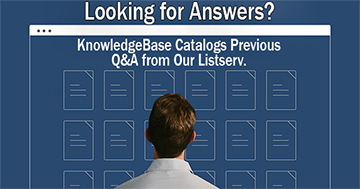|
2023
MPFS PROPOSED RULE RELEASED
The Centers for Medicare & Medicaid
Services (CMS) recently released the 2023 Medicare Physician Fee Schedule (MPFS) Proposed Rule. The
rule contains many positive proposals for the Medicare Shared Savings Program (MSSP)
that NAACOS has long been advocating, including a more appropriate glidepath to risk,
more realistic and favorable benchmarking policies, favorable changes to quality
scoring, and reduced regulatory burden.
NAACOS
Webinars Review Significant MSSP Proposals
NAACOS will host two
webinars on the MPFS Proposed Rule. The first webinar will be on July 20 from 1:00–2:30 pm ET and will
provide a detailed overview of the proposed policies. Then, on July 28 from 2:00–3:00 pm
ET, NAACOS will host a webinar reviewing the proposed changes to financial
methodologies. Both webinars are free to members and business partners. Please note that
you will need to register separately for each one.
Highlights
from the Proposed Rule
A link to the CMS MPFS Factsheet is provided as well as a Quality Payment Program (QPP) Factsheet. If finalized, the
proposed rule would:
- Decrease the Medicare conversion factor from $33.598 to $33.0775 for 2023.
- Change the current “Pathways to Success” glidepath to allow more time before
advancing to risk.
- Certain ACOs inexperienced with risk would be allowed to participate in
the program for up to seven years before advancing to risk
- The Enhanced Track would be optional for all ACOs
- ACOs currently participating in Basic Track Level A or B would have the
option to elect to continue in their current level of the Basic Track
glide path for the remainder of the agreement. Starting July 22, 2022,
ACOs can make this election in the ACO-MS beginning July 22, 2022. The
deadline to make the election is September 9 at 12:00 pm ET.
- Establish advance investment payments (AIPs) for certain low revenue ACOs
inexperienced with performance-based risk that are eligible to participate in
the MSSP Basic Track glidepath. The AIP includes an upfront fixed payment and
quarterly payments distributed over two years, which will be based on the number
of assigned beneficiaries, capped at 10,000 and adjusted for beneficiaries’
social risk.
- Make significant changes to the calculation of benchmarks:
- Incorporate a prospectively projected administrative growth factor into
a three-way blend with national and regional growth rates to update an
ACO’s historical benchmark for each performance year.
- Account for changes in ACOs’ demographic risk scores before applying its
3 percent cap on clinical risk scores and apply the cap in aggregate
across all four enrollment types.
- Account for an ACO’s prior savings in rebased benchmarks to help
mitigate the lowering of an ACO’s benchmark over time.
- Reduce the cap on negative regional adjustments from -5 percent to -1.5
percent. After the cap is applied to the regional adjustment, gradually
decrease the negative regional adjustment amount as an ACO’s proportion
of dual eligible beneficiaries increases or its weighted-average
prospective hierarchical condition code (HCC) risk score increases.
- Move the window used to calculate regional adjustments from the
preceding calendar year to an off-set window that matches the assignment
window for ACOs that use prospective assignment.
- Seek comment on alternative approaches to establishing ACO benchmarks
using administratively set trends rather than historical spending in
order to eliminate the “ratcheting effect.”
- Allow all low revenue ACOs a chance to share in some savings even if they fail
to meet or exceed their minimum savings rate (MSR).
- Make changes to policies for establishing the quality performance
standard threshold used in determining shared savings rates.
- Extend incentives for reporting electronic clinical quality measures
(eCQMs) through 2024.
- Add health equity quality bonus points for ACOs with high quality performance in
highly underserved populations.
- Reduce burden by:
- Revising the beneficiary notification requirement from an annual
requirement to once per agreement period.
- Streamlining the three-day skilled nursing facility (SNF) waiver
application process.
- Permanently establish the 8 percent minimum Generally Applicable Nominal Risk
standard for Advanced APMs (alternative payment models).
NAACOS staff are currently reviewing the regulation and will provide a detailed analysis
to members shortly. Should you have any questions, please email us at [email protected].
|
|
Welcome
New Business Partner
|
Crowell
Health Solutions
Crowell
Health Solutions is a strategic consulting firm focused on helping
clients to pursue and deliver innovative alternatives to the
traditional approaches of providing and paying for health care,
including through digital health, health equity, and value-based
health care.
www.crowell.com |
|
DISCOUNTED
EARLY RATE ENDS THIS FRIDAY, REGISTER NOW TO SAVE
Join
us September 7–9, 2022, for the NAACOS Fall Conference at the Marriott Marquis
Washington, D.C. Register before July 15 for the in-person conference and receive
a discount of $300 per person. Can’t attend in person? Register for our live
webcast before July 15 and receive a discount of $100 per person.
Take advantage of our group rates! We are offering group rates for both the in-person
and virtual conference. To register at the group rate, please contact Emily Perron.
Group rates increase July 15!
CMS
Brooks-Lasure Confirmed to Open Conference
CMS Administrator Chiquita
Brooks-LaSure is now confirmed to keynote the conference. Ms. Brooks-LaSure oversees
programs at CMS including Medicare, Medicaid, the Children’s Health Insurance Program
(CHIP), and the HealthCare.gov health insurance marketplace. The agenda will also
feature leading ACO experts and CMS officials sharing timely and essential information
for ACOs. Full agenda
is now available.
Two pre-conference workshops on Wednesday,
September 7 from 1:00 pm to 5:00 pm can enrich your conference learning. The two
workshops will be focused on:
- ACO REACH Compliance and Waivers chaired by Beth Patak, Equality Health
- Preparing for eCQM Reporting chaired by Anna Taylor, MultiCare Connected Care
Exhibitor
and sponsor opportunities are now available!
The NAACOS Fall Conference
will feature exhibitors with products and services specifically for the accountable care
community. Reserve
your space today!
OUR
NEXT DC LEARNING DISCUSSION IS TOMORROW
NAACOS’ July Direct
Contracting (DC) Learning Discussion will take place this Friday, July 15, from
12:00–1:00 pm ET. We will discuss the Center for Medicare and Medicaid Innovation (CMMI)
2023 application decisions for ACO REACH, the Q1 retrospective trend adjustment, and how
we are addressing continued opposition to ACO REACH as part of our media campaigns.
Participation is limited to those participating in the model in 2022. Accordingly, advanced registration is required. If you have questions or
additional topics you want discussed, please share them in advance by emailing [email protected].
Our goal is to make these discussions collaborative and a forum for shared learning.
COMPLETE
OUR BRIEF SURVEY AND HELP INFORM CMS ECQM POLICIES
We would like to
hear from members regarding the key cost and implementation challenges associated with
electronic clinical quality measures (eCQMs) and the revised quality performance
standard. Information you share will help NAACOS advocate for fair and appropriate
policies to allow ACOs to continue to transition to eCQM reporting without harming the
value-based movement. Please take our 5-minute survey, limiting your responses to one per ACO.

NAACOS
WRITES CMS ON BENEFICIARY NOTIFICATION IMPROVEMENTS
CMS sought input on
improving ACO beneficiary notifications. Last week NAACOS sent CMS recommendations asking the agency to provide
flexibility for ACOs to draft their own letter that’s approved by CMS, similar to the
approach used for ACOs’ marketing materials. Rather than seeking agreement on one letter
that is used by all ACOs, CMS could provide standards and expectations for the
beneficiary notification. As ACOs are aware, these notifications cause tremendous
confusion among patients. NAACOS wants to work with CMS to establish a process that
eliminates confusion and better informs beneficiaries about their care.
CELEBRATE
MEDICARE’S ANNIVERSARY WITH NAACOS
July 30, 2022, marks the 57th
anniversary of Medicare. NAACOS will be highlighting the importance of value-based care
in the program. Specifically, we will showcase that ACOs save Medicare money while delivering high-quality care to
beneficiaries, but misinformation has led some to call for the removal of accountable
care models from Medicare. Please join us in our social media campaign throughout the
month of July. We are encouraging members to use our social media
toolkit to share key messages and graphics, use our Take Action page to
write your representatives in support of policies that protect and grow ACO models, and
draft commentaries/letters to the editor to share this message with your communities.
You can download the toolkit today to get started!
AISHA
PITTMAN JOINS NAACOS AS SVP OF GOVERNMENT AFFAIRS
NAACOS is pleased to
announce that Aisha Pittman will serve as its next senior vice president of government
affairs. In her role, Pittman will lead NAACOS’ policy analysis and advocacy work,
helping promote legislative and regulatory policies that will advance ACOs. She has 19
years of experience in healthcare payment, alternative payment models, healthcare
quality measurement, and health information technology. She started on July 11. Pittman
was previously vice president of policy with Premier, Inc. During her eight years there,
she was responsible for working with policymakers, providers, and other healthcare
stakeholders to reduce costs and improve the quality of health care. Prior to Premier,
Pittman held senior management roles with the National Quality Forum, the Maryland
Health Care Commission and CenterLight Healthcare, in addition to experience at the
National Committee for Quality Assurance. Please welcome Aisha to the NAACOS family at
[email protected].

HOUSE
RELEASES PROPOSED HEALTH FUNDING BILL
On June 30, the House
Appropriations Committee approved the Fiscal Year (FY) 2023 Labor, Health and Human
Services (HHS), Education funding bill. The bill provides $4.3 billion for CMS
administrative expenses, an increase of $322 million above the FY 2022 enacted level and
equal to the President’s budget request. The committee also included $1 million for HHS
to establish and maintain a report on best practices of population health management
through the creation of a population health task force. It also includes report language
asking CMS to address overpayments to Medicare Advantage (MA), along with a request for
a report comparing per enrollee spending in MA and fee-for-service Medicare. The House’s
HHS funding bill does not represent a bipartisan consensus and is only the first step in
the appropriations process. The House and Senate will need to reach a bipartisan
agreement in the coming months to extend government funding past the end of the fiscal
year that ends on September 30.
CONGRESS
LEANS IN TO PRE-ELECTION PRIORITIES
Congress returns this week with
Senate Democrats working to finalize agreement on a reconciliation package that has been
stalled since last year. Notably, Senate Majority Leader Schumer (D-NY) has tested
positive for COVID-19, and Senator Pat Leahy (D-VT) is out for hip surgery, so the
Senate does not have the requisite votes to advance the reconciliation package this
week. Discussions are centered around a scaled back package that includes drug pricing,
tax, and energy reform proposals. Many advocates are also closely watching a
health-related provision that has received renewed interest to extend the life of the
Medicare Trust Fund through 2031. The provision would require a new nearly 4 percent tax
on income from certain pass-through entities such as limited liability partnerships and
certain corporate structures, and the “trades,” such as physician practices and law
offices. There are also several hearings on the agenda this week where lawmakers will
discuss reproductive rights following the Dobbs decision, with the House also planning
to hold votes on legislative proposals.
CMMI
RELEASES ACO REACH APPLICATION DECISIONS
CMMI recently notified
applicants for its revamped ACO REACH Model of their acceptance or denial. According to
the fact sheet CMMI received 271 completed applications and accepted
128 of them, a 47 percent acceptance rate. This is both a high number of applications
and a much lower than normal acceptance rate. CMMI indicated that all applications that
did not pose a material program integrity risk and received a strong application score
were accepted. The number of applications accepted does not reflect current Global and
Professional Direct Contracting (GPDC) Model participants, who must meet all ACO REACH
requirements to continue participating. Next month, CMMI is planning to release the
names of participants in the next implementation period. More information is also
included in this frequently asked questions document from CMMI.

CMS
RELEASES LIST OF UNPAID 2022 ADVANCED APM BONUSES
In June, CMS
announced disbursement of the 2022 5 percent Advanced APM bonus to eligible clinicians
who were Qualifying APM Participants (QPs) based on their 2020 performance. CMS recently
published the list of unpaid QPs to whom the agency has been unable to complete
payments. CMS is asking clinicians to verify their information using the 2022 QP Notice for APM Incentive Payment Zip File and complete
the 2022 Billing Information Collection Form and submit it to the QPP Help Desk at [email protected]
no later than November 1, 2022.
CMS
UPDATES QP STATUS AND DATA AFTER FIRST SNAPSHOT
On July 8, CMS updated
its QPP Participation Status Tool based on the first snapshot of
Advanced APM data. The first snapshot includes data from Medicare Part B claims
with dates of service from January 1 through March 31. QP providers must receive at
least 50 percent of their Medicare Part B payments or see at least 35 percent of
Medicare patients through an Advanced APM entity to be eligible for a 5 percent bonus
paid in 2024.
As previously reported in our newsletters, more providers in
ACOs and DCEs will be eligible to earn these bonuses as a result of NAACOS’ advocacy to prevent the QP thresholds from sharply
rising in 2021. Performance Year 2022 is also the final year for providers to qualify
for a 5 percent bonus in payment year 2024. NAACOS and our stakeholder partners are
engaging with Congress asking lawmakers to extend these incentives for six additional
years. NAACOS is asking our members to contact Congress today to ask them to support an
extension of these critical payments for value-based care providers.
CMMI
MODELS REVIEWED FOR IMPLICIT BIAS
In support of its efforts to address
health equity across all models, CMMI recently conducted a review of three existing payment and
delivery models, assessing for the presence of implicit bias and the impacts of any
discovered bias. Evaluators found elements of bias within the Kidney Care Choices (KCC) Model, Comprehensive Care for Joint Replacement (CJR) Model, and Million Hearts® Cardiovascular Risk Reduction Model. For example, there was bias
in screening and alignment policies for KCC, in CJR selection bias leading to a less
medically-complex and less racially-diverse patient mix, and demographic data
inaccuracies that led to systemic underestimation of risk for patients from certain
racial/ethnic groups and the exclusion of otherwise-eligible Black beneficiaries from
the Million Hearts® Model. The model tests for KCC and CJR are ongoing, and the
Innovation Center has issued new guidance or revised policies to attempt to mitigate
these implicit bias impacts. Additionally, CMMI will be developing a step-by-step guide
to screen for and mitigate bias in current and new models.

CMS
PUBLISHES BLOG ON HEALTH EQUITY FRAMEWORK
Last week, the CMS Office of
Minority Health (OMH) published a blog detailing the development of the CMS Framework for Health Equity released earlier this year. This
framework was designed to provide an integrated, action-oriented approach for CMS to
advance health equity, including a 10-year plan to embed health equity across all CMS
programs. CMS plans to continue to engage with communities affected by disparities to
design, implement, and operationalize policies and programs that support health equity.
You can learn more about these efforts on the CMS OMH
website.
NAACOS
HOSTING PROVIDER COMPENSATION CALL ON JULY 25
With much interest
recently expressed on the topic of provider compensation modeling, NAACOS has set up a
Zoom discussion for our members on July 25 from 3:00–4:00 pm ET. Dr. Rob Fields,
Executive Vice President and Chief Population Health Officer, Mt. Sinai Health System,
will be discussing Sinai’s approach to this topic. He will provide insight in the ways
value-based systems can change incentives to motivate behavior change and drive
performance on quality and savings by promoting value-based operations and performance
using a risk-adjusted panel size model of productivity. This session will be open to
live questions and will provide an opportunity for others to express their experiences
in provider compensation. Make sure to add the appointment and Zoom link to your calendar!
ACO
ROLE-BASED AFFINITY GROUPS HAVE LAUNCHED
Sign up now to participate in
NAACOS Affinity Group
Meetings designed to foster peer-to-peer exchange among those with similar
professionals roles tackling current ACO and population health issues. These sessions
are in addition to the in-person affinity group sessions held at our fall and spring
conferences and will be held virtually every few months throughout the year. There are
currently five groups categorized by professional role. You may join one or more
depending on your current role and responsibilities. You will need to sign up
individually for each group that you would like to participate in. Sign up today for
your NAACOS Affinity Group series so you don’t miss out on your chance to connect with
peers throughout the year!
NEW
LEARNING LAB ON MEDICAID AT FALL CONFERENCE!
NAACOS will be kicking off
a New Learning Lab
focused on Medicaid ACOs and Contracts that will take place on September 7, 2022, in
conjunction with the Fall conference. This will be a separate event that is free to
current NAACOS ACO members. Because there is no fee to register, we are limiting
participation to one person per organization. Additional staff may participate in follow
up Lab activities held virtually. Those participating in the Specialist Engagement and
Incentives Learning Lab will also meet at this time on September 7. Register Today
to attend the Medicaid Lab and learn with peers! If a representative from your ACO has
expertise to present or would like to take a more active role in either of the learning
labs, please reach out to Melody Danko-Holsomback, VP of Education, [email protected].
|
|